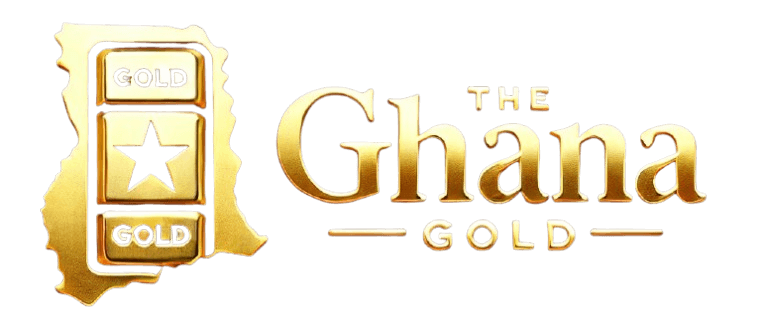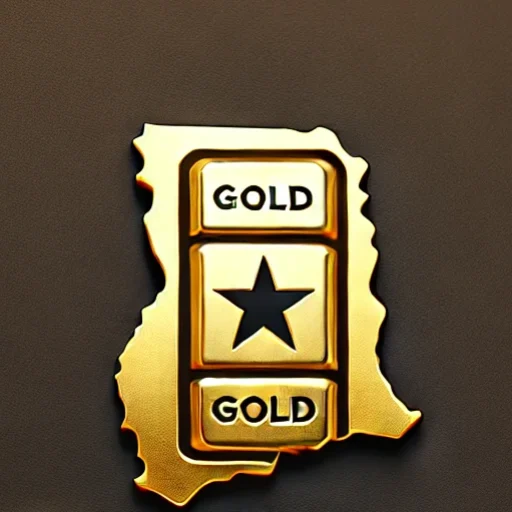- Introduction
- The Legal Foundation of Mineral Ownership in Ghana
- Categories of Mineral Rights in Ghana
- Steps to Acquire Mineral Rights
- The Role of the Minerals Commission
- Surface Rights vs. Mineral Rights
- Community and Customary Land Considerations
- Foreign Participation and Equity Requirements
- Contract Transparency and Public Accountability
- Challenges and Opportunities
- Conclusion
Introduction #
Investing in Ghana’s gold sector requires a clear understanding of the country’s legal structure around mineral ownership, mining rights, and the responsibilities of concession holders. Ghana’s gold resources are not owned privately but by the state, which administers them on behalf of the people. This article offers a comprehensive overview of how mineral rights are acquired, the legal framework that governs them, and what investors need to know to engage in Ghana’s mining ecosystem securely and profitably.
The Legal Foundation of Mineral Ownership in Ghana #
Under Article 257(6) of the 1992 Constitution of Ghana, all minerals in their natural state are vested in the President of the Republic, who holds them in trust for the people. This legal construct means that no individual or entity can own mineral deposits; instead, rights are granted through leases, licenses, or permits administered under the Minerals and Mining Act, 2006 (Act 703) and its subsequent amendments.
This framework exists to ensure transparency, environmental stewardship, and equitable benefit sharing, while also granting foreign and local investors structured pathways to participate in gold exploitation.
Categories of Mineral Rights in Ghana #
The Minerals and Mining Act outlines several categories of mineral rights that can be granted:
- Reconnaissance Licence:
- Allows preliminary surveys such as geophysical and remote sensing activities.
- Duration: 12 months (renewable once).
- Does not allow physical excavation or drilling.
- Prospecting Licence:
- Grants the right to conduct further exploration, including trenching, drilling, and sample analysis.
- Duration: Up to 3 years (renewable).
- Does not permit mining or extraction.
- Mining Lease:
- Issued after significant reserves are proven through exploration.
- Allows full-scale extraction and commercial operations.
- Duration: Up to 30 years (renewable for another 30).
- Requires Environmental Permit and Feasibility Studies.
- Restricted Mining Lease / Small-Scale Mining Licence:
- Reserved for Ghanaian citizens or wholly Ghanaian-owned companies.
- Typically for operations on lands not exceeding 25 acres.
- Duration: Up to 5 years (renewable).
- Salt and Industrial Mineral Rights:
- These are separate from gold and fall under a different regime, though governed by the same Act.
Steps to Acquire Mineral Rights #
The licensing process typically follows a step-by-step legal route:
- Application to the Minerals Commission
Investors submit detailed applications with technical, financial, and operational documentation. - Due Diligence and Vetting
The Minerals Commission vets applications to ensure land availability, prior rights, and community impact. - Recommendation to the Minister of Lands & Natural Resources
If approved, the application is forwarded to the sector Minister for consideration and issuance. - Environmental and Land Use Approvals
The applicant must obtain EPA approvals, engage local communities, and adhere to land rights protocols. - Final Issuance and Gazette Notification
Once approved, the rights are officially gazetted and made public. Operations may commence thereafter.
The Role of the Minerals Commission #
The Minerals Commission is the primary regulator overseeing all activities within the mineral sector. It serves as the interface between the investor and the state and performs functions such as:
- Recommending mineral right applications
- Monitoring license compliance
- Conducting field audits
- Coordinating with the EPA and Geological Survey Department
Investors benefit from a transparent, documented process, though delays may occur due to incomplete submissions or land disputes.
Surface Rights vs. Mineral Rights #
A common source of confusion is the distinction between surface rights and mineral rights. In Ghana:
- Mineral rights are granted by the state (not landowners), and prevail legally.
- Surface rights refer to land ownership or occupancy by traditional authorities, families, or individuals.
Before exploration or mining can begin, investors must negotiate access with surface right holders (e.g., payment of compensation, relocation agreements). These negotiations are guided by law and often mediated by the Lands Commission or District Assemblies.
Community and Customary Land Considerations #
Approximately 80% of land in Ghana is customary land, controlled by traditional authorities. Mining investors must engage chiefs and local leaders early in the process to build trust, avoid conflicts, and agree on terms for land use.
Key tips for investors:
- Engage local landowners before license approval, not after.
- Ensure that compensation and CSR (corporate social responsibility) expectations are clear.
- Obtain MOU (Memorandum of Understanding) with community stakeholders to avoid litigation.
Foreign Participation and Equity Requirements #
Ghana encourages foreign investment in the mining sector but imposes certain equity rules:
- Foreign companies must partner with a Ghanaian company if operating in the small-scale sector.
- In large-scale mining, there is no minimum Ghanaian ownership, but local content policies require the use of Ghanaian goods, labor, and services where available.
The Ghana Investment Promotion Centre (GIPC) and Minerals Commission work to facilitate foreign investments, including help with immigration, capital repatriation, and business registration.
Contract Transparency and Public Accountability #
In line with Ghana’s commitment to the Extractive Industries Transparency Initiative (EITI), most mining contracts are now public documents. This transparency builds investor confidence and fosters public trust.
The state also has a stake in some mining leases through carried interests (typically 10%), giving it oversight without blocking private operations.
Challenges and Opportunities #
While Ghana’s legal framework is progressive, some challenges persist:
- Land access conflicts: Competing claims between farmers and mining companies can delay projects.
- Regulatory bottlenecks: Multiple agency sign-offs can lead to process delays.
- ASM vs LSM tensions: Overlapping claims between small-scale and large-scale operators occasionally trigger disputes.
However, these are being addressed through:
- Digital cadastral systems for license tracking
- Community development agreements (CDAs)
- Legal reforms (e.g., Minerals and Mining Amendment Act, 2019)
Conclusion #
Understanding mineral rights in Ghana is critical for any investor hoping to navigate the gold sector. The legal framework is designed to be transparent, structured, and investor-friendly—so long as due process is followed. With clear land-use agreements, community engagement, and regulatory compliance, Ghana offers one of the most stable and attractive mining jurisdictions in Africa.







